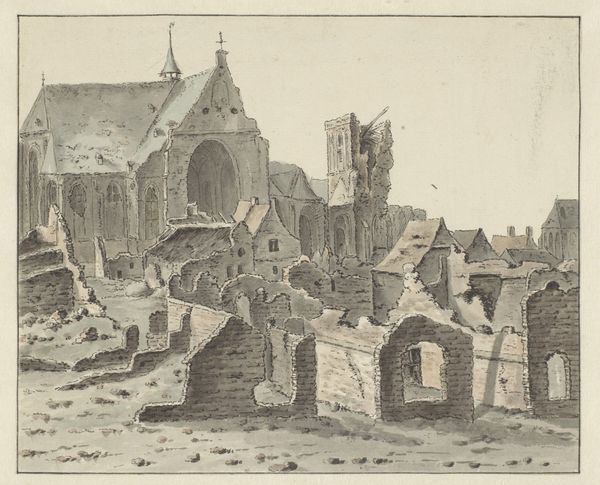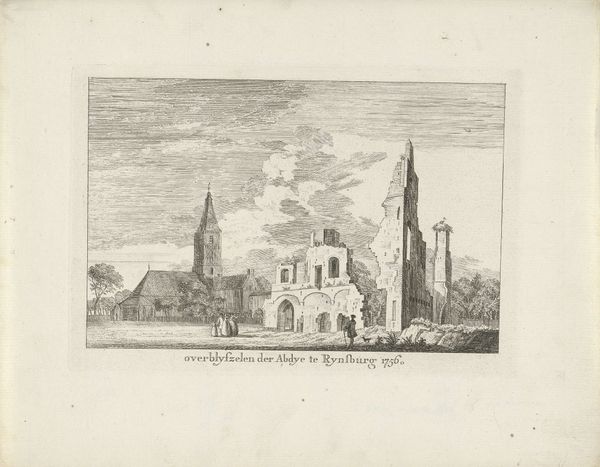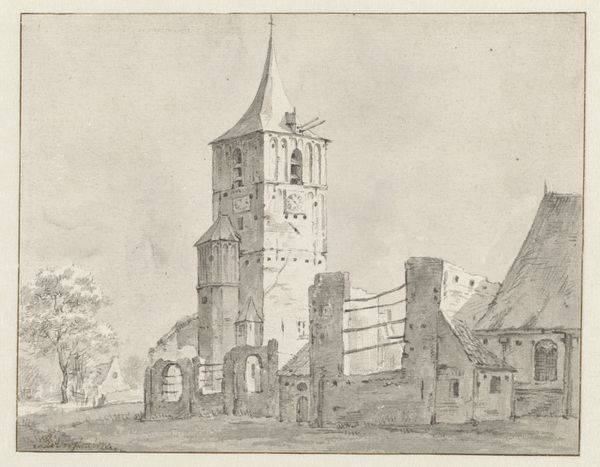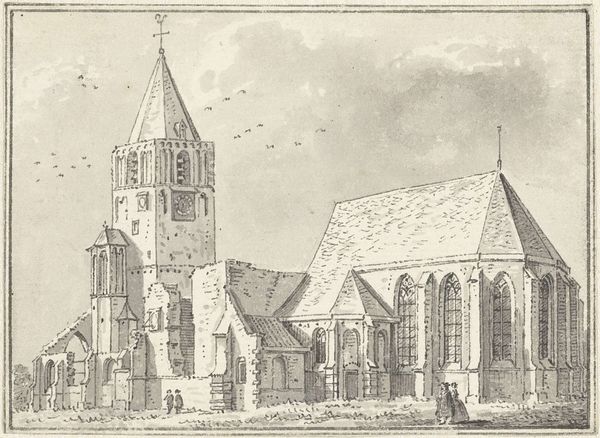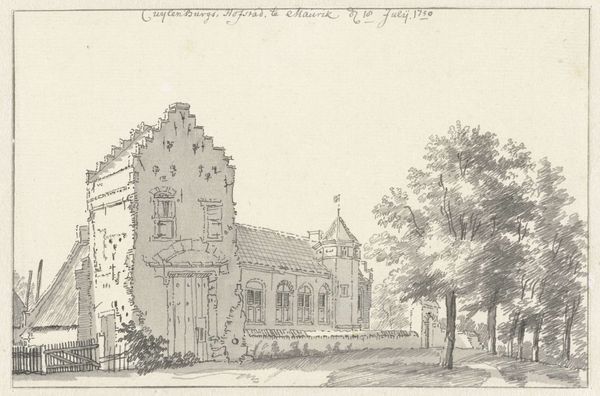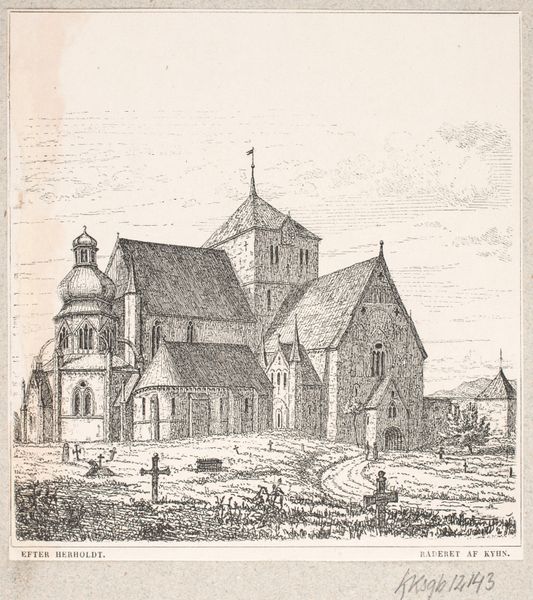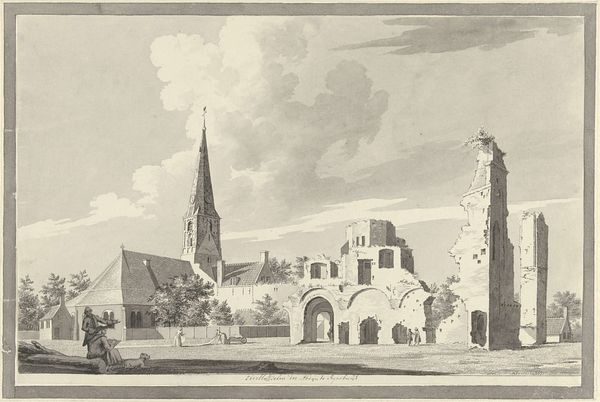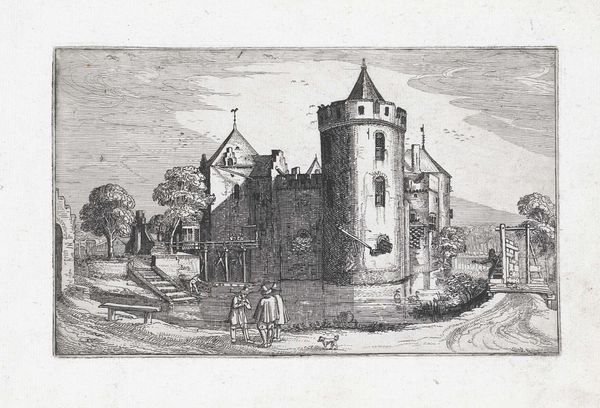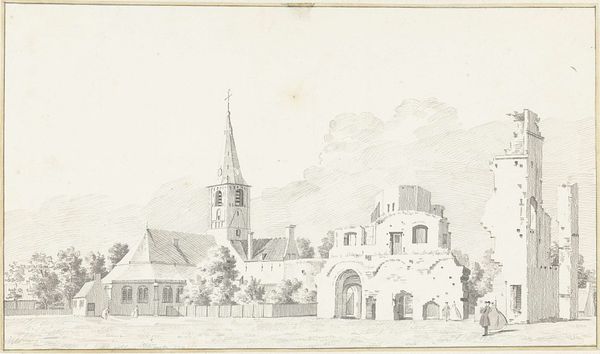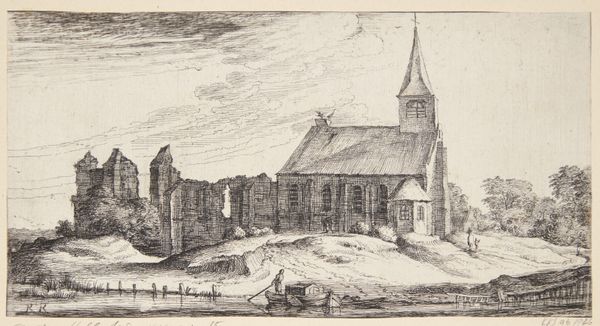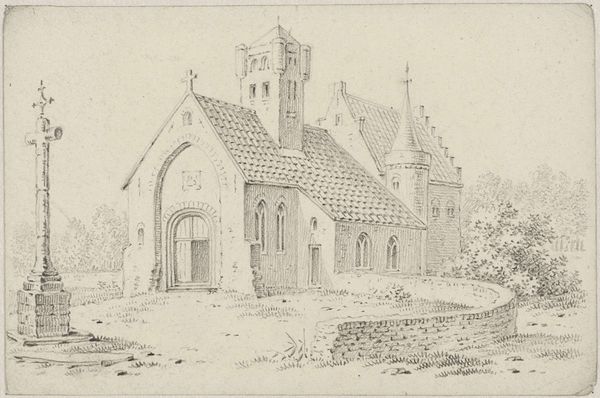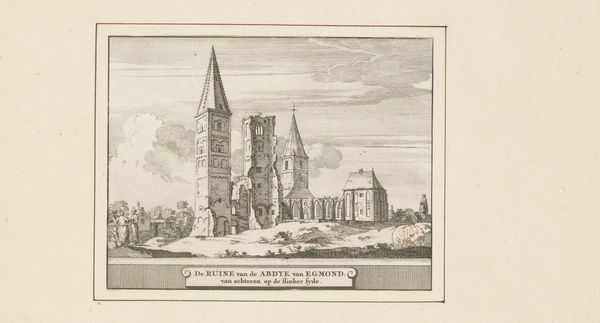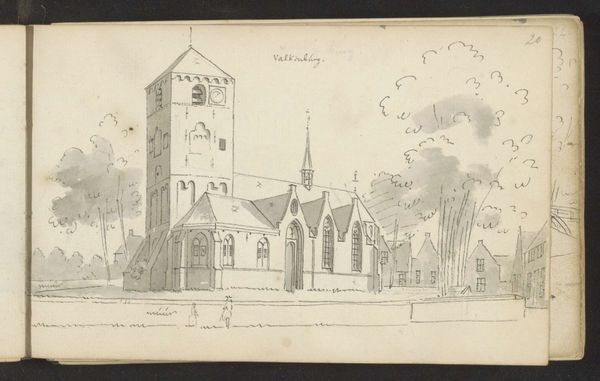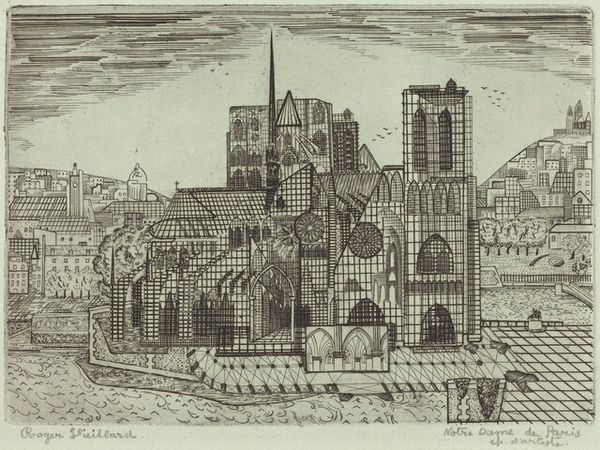
drawing, ink, pencil
#
drawing
#
baroque
#
landscape
#
perspective
#
ink
#
pencil
#
cityscape
#
history-painting
Dimensions: height 158 mm, width 210 mm
Copyright: Rijks Museum: Open Domain
Jan de Beijer created this pen and wash drawing titled 'Ruïne van de kerk te Mill', or 'Ruin of the Church at Mill,' in 1743. De Beijer was a draughtsman known for topographical works, meaning he documented landscapes and buildings. In the 18th century, the Dutch Republic was experiencing a period of economic decline, and there were tensions between the ruling elite and the common people. The ruins depicted in the drawing can be seen as a metaphor for the decay of societal structures and the fragility of human achievements. De Beijer was known for his ability to realistically depict architectural details, and he used this skill to create a sense of authenticity and realism in his drawings. This drawing serves as a historical document, capturing a specific time and place. It’s an emotional and personal reflection on change and loss. What narratives might we build around such a potent image of the past?
Comments
No comments
Be the first to comment and join the conversation on the ultimate creative platform.
